Today we will be studying how voltage and current are distributed throughout a circuit, it seems complicated at first but it gets quite simple once you get the hang of it.
First we will study voltage. Voltage will drop through resistors in series but in parallel the resistors will have an equal drop in voltage. On the other hand, current doesn't change as long as it's all going through the same path, but, as soon as the path divides going in to a parallel the current divides as well.
Knowing that we need to understand how the voltage drops and the current divides. To calculate the drop in voltage through one resistor you need the two other factors, the resistance and the current flowing through that resistor, with this we get the voltage drop at a resistor.
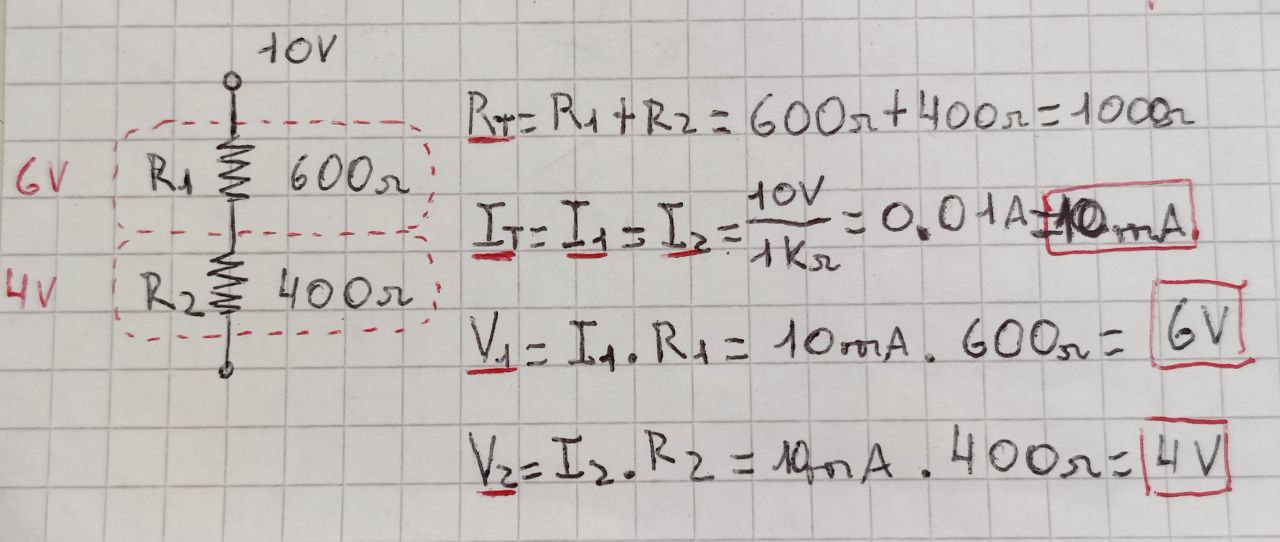
And to calculate the current in each resistor of a parallel you use the voltage which is the same for all resistors in a parallel.
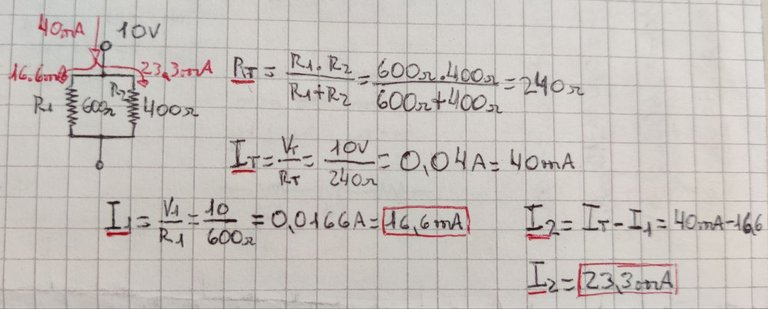
Now that we have seen how to calculate each variable through different configurations of resistors we will look at a simple "mixed" circuit to put this information to the test. You will be able to follow the arrows to understand my approach to a circuit.
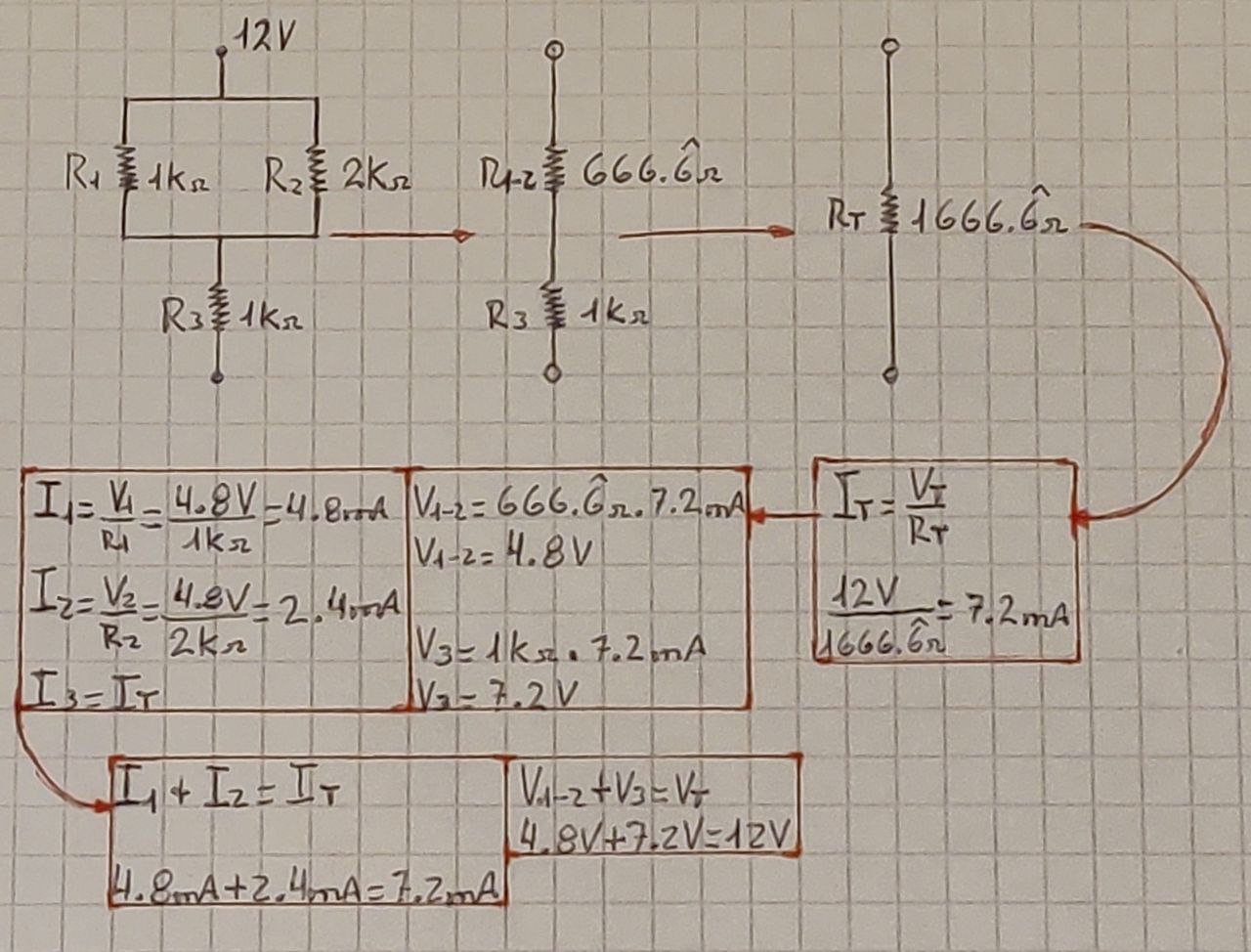
To complicate things further we will look at the circuit from the last post while adding a voltage. We can look at the calculations we have already done and use them to skip the fist part which is finding resistor combinations and simplifying the circuit.
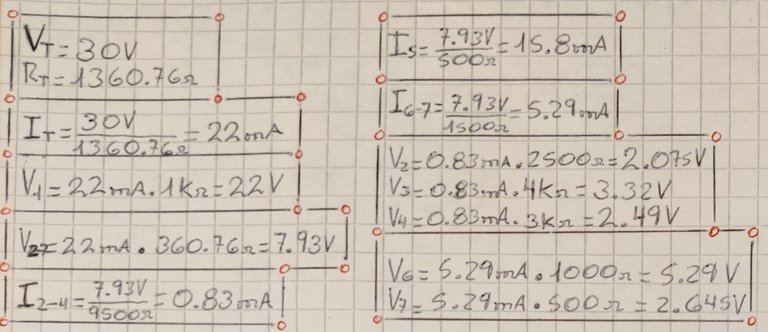
You can see in the following diagram the verification of Kirchhoff's laws of current and voltage. The values aren't exact but there is a tolerance for this given that we can't always use all the decimals next to a number so if it is close it is most likely correct.
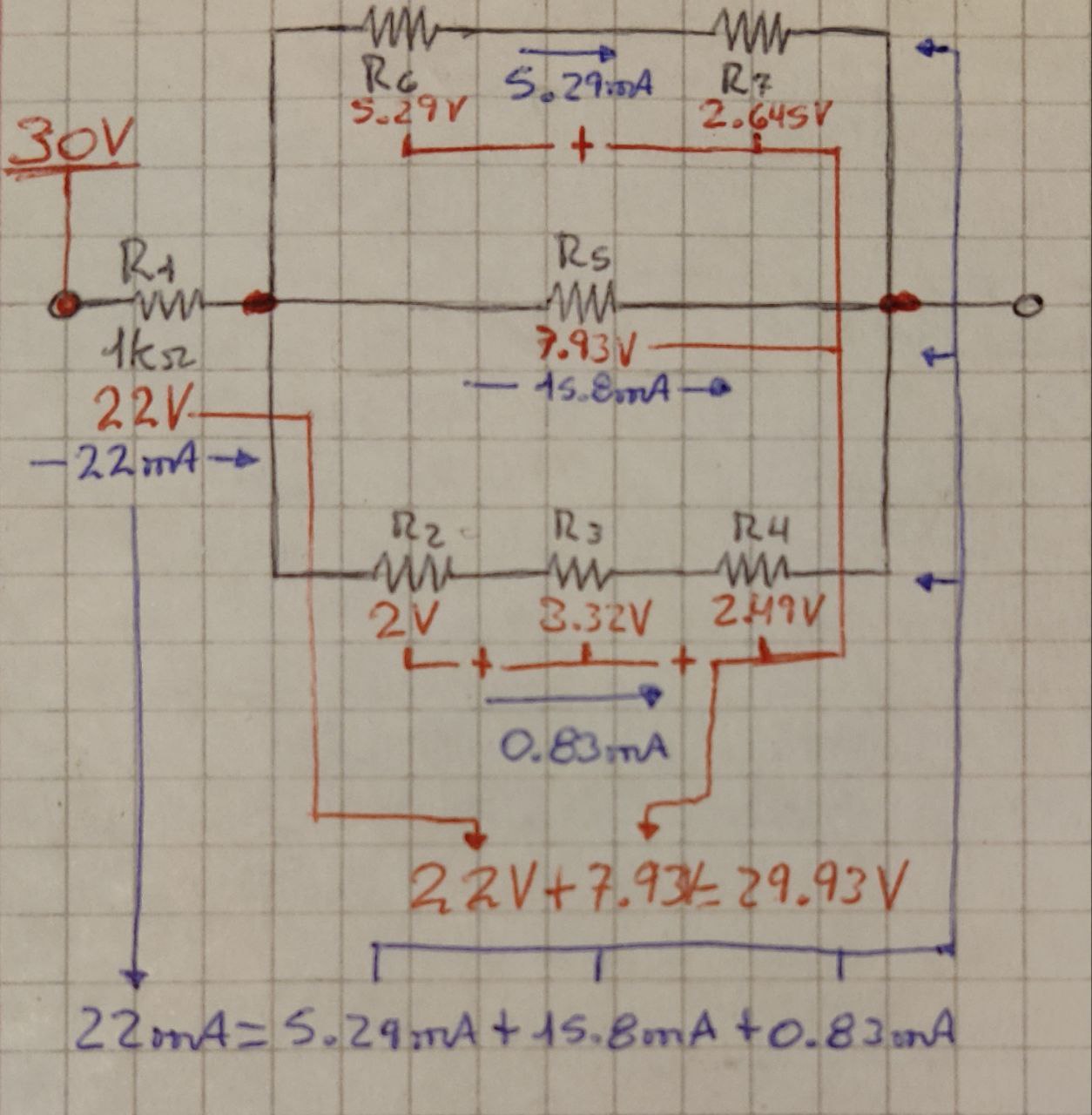
Now that you've seen this we will go over some things that should help you in the future to understand electricity. The first we will look at is the fact that the current will distribute itself opposite to how a parallel is configured being that the lowest value resistors will have the highest amount of current flow through them and through higher value resistors there will be less current flow. The same happens with voltage but in this case it is directly proportional, when there is higher resistance you will have a higher voltage drop and vice versa.
Another thing you should note is the fact that you can use Kirchhoff's law to find information quicker, for example, if you know the total current and the current through two of the paths of a parallel with three paths you can simply subtract those from the total current to get the current you were missing.
This was a little more extensive than my last posts so it took a bit more effort to write. there was some more to say here and there but I will definitely post more about the tips and tricks and make up more mixed circuits to solve together so that we can further learn to calculate the variables that are missing in different cases. That's all for today and I hope to see you again next post, and again as always, if I made any mistakes in this post, I would like to encourage you to point them out so that I can correct myself. Thank you.


